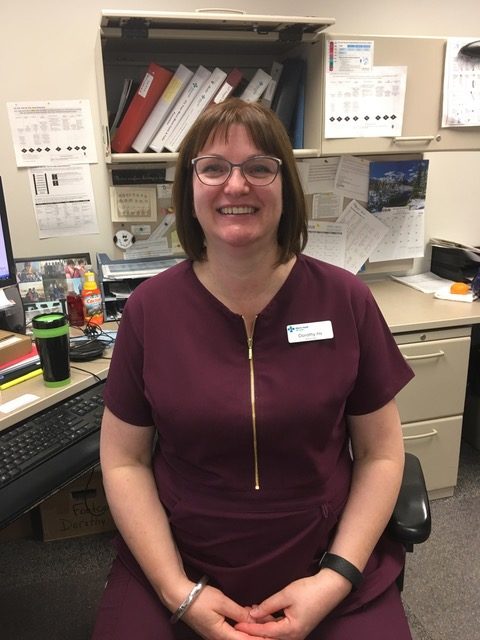
– Photo supplied by Dorothy Dillman
Home-care nurses often have to bite their tongues and listen.
What it means to care for someone in their own home is something case manager Dorothy Dillman, an registered nurse, had to come to terms with eight years ago when she switched to a home-care nursing position in Manning, about an hour north of Peace River.
I get as many moments of joy out of being a nurse as, hopefully, … I’m able to give to people. When you can make somebody who’s feeling sick, confused, lonely, and in pain … smile, it’s a good day.”
– Dorothy Dillman, registered nurse
“I had to learn in home care … that I was a guest in people’s homes, and I couldn’t tell them what to do,” said Dillman, who has taken on various nursing roles at the Manning Community Health Centre since starting there in 1988.
“[Home care is] the most challenging job I’ve had … It’s not doing the work [or] providing care: that’s easy,” Dillman explained. “It’s convincing them to let you help them [and] convincing them that you’re not here to take them out of their house. Your job is to keep them in their house.” She stressed that home-care patients must be capable of making safe decisions for that level of care to occur.
Her approach often includes discussions far removed from their health-care needs. Drawing out details from clients about their life comes easily for Dillman now, but she chuckles about how shy she was 34 years ago when arriving at nursing school in Grande Prairie.
Today, she appreciates the small wins and trusts she is doing her best to help clients achieve their goals.
“I get as many moments of joy out of being a nurse as, hopefully, … I’m able to give to people. When you can make somebody who’s feeling sick, confused, lonely, and in pain … smile, it’s a good day.”
—Lorena Franchuk
Did you enjoy this article?
Subscribe to the Rural Health Beat to get an article about positive developments in rural health delivered to your inbox each week.
Oops! We could not locate your form.
